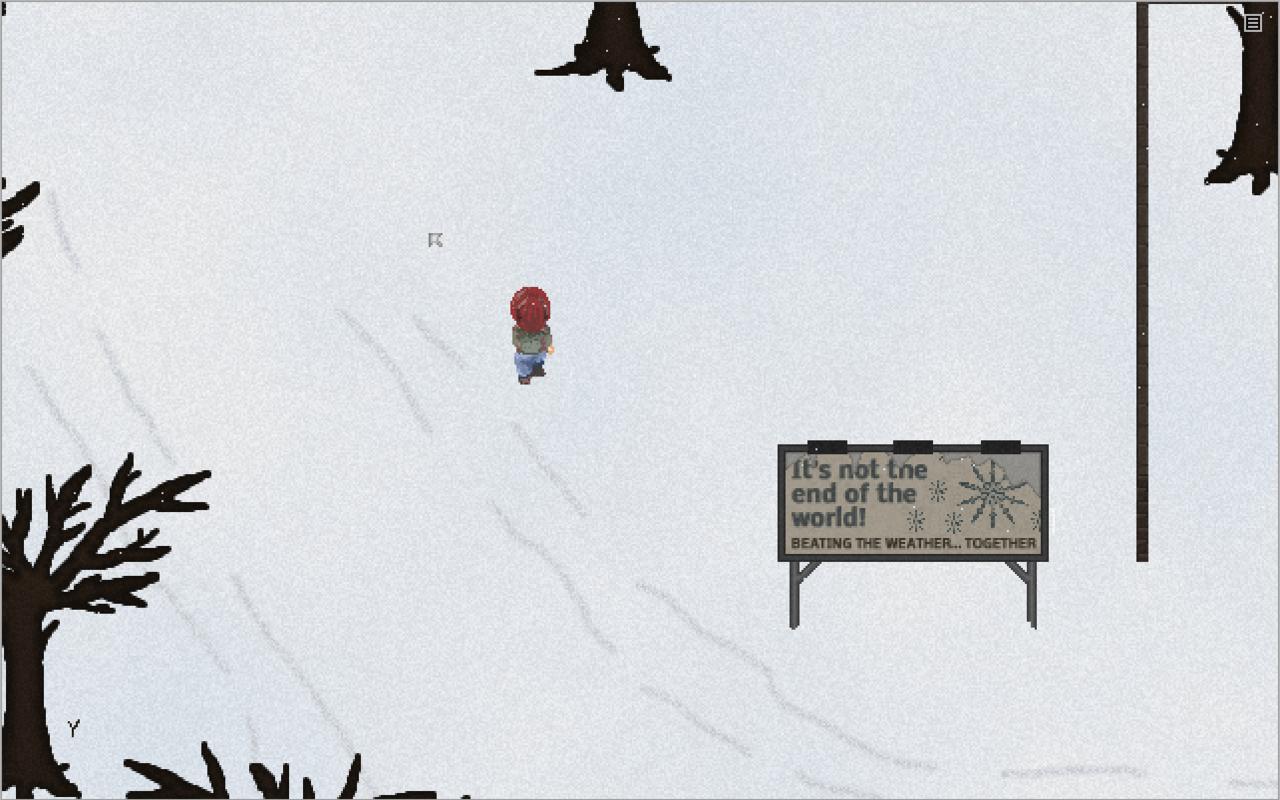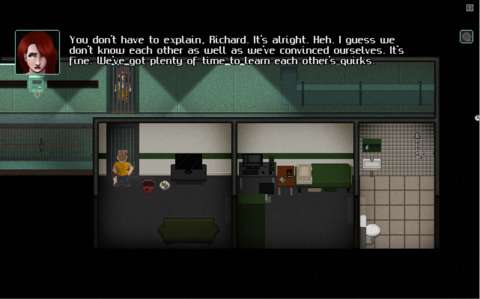Nuclear war. Pandemic. Meteors. Zombies. With all the death and devastation in syndication these days it's become harder to discern the older, less ruinous meaning of the word apocalypse--that of simply "uncovering" or "revealing." But even as our media comes up with ever more creative ways to destroy civilization (wait, we're doing the monkey one again?), it's offered us simpler revelations. One post-apocalyptic priest in Richard & Alice offers a characteristically concise one: "We're all just trying to exist for another day. See the sun rise in the morning, then see it set once more."
That's a lot to ask for the eponymous duo, as it turns out. Richard & Alice occupy opposing prison cells, and though they're actually pretty cushy, as cells go, neither comes with a view. Not that there'd be much to see, what with the bulk of the outside world brought to its knees by crippling snowfall and cold. This point & click drama by Lewis Denby and Ashton Raze doesn't dwell on the particulars of that nasty bit of climate change, and that omission tells us a good bit about where its storytelling priorities lie. Richard is neurotic from his mostly solitary confinement, and preoccupied with the elaborate maintenance claims he files with his computer (they really are cushy cells). Alice is prone to bouts of dark sarcasm, and through a series of playable flashbacks we're shown that she's also a devoted mother of a five year old named Barney. As the stage shifts between Richard's point of view in the present and Alice's in the past, we're gradually brought up to speed on how each arrived at such bleak circumstance.

Advancing the narrative requires solving rudimentary item-based puzzles of the "use rust remover on rusty ladder" ilk. It is the apocalypse, so crowbars and lighters fill the ad hoc roles that keycards and cryptexes play in less grimdark puzzle games. I'm all for the miracle of mundane things--anyone who's played The Last of Us can testify to the life-saving properties of a good pair of scissors--but sometimes their contrivance in Richard & Alice beggars belief.
But then, the end of the world itself feels a little suspect here, from the limited scope of devastation that Alice and Barney witness, right on down to the high school mascot-style name of the gang that waylays the survivors: the Polar Bears. Alice's game efforts to shield Barney from the horrors of their world seem to have proven too effective: the child doesn't seem to have the faintest comprehension of them. It's a dynamic that's played to good effect during a few tense early moments, as Alice struggles to convey a sense of urgency to her son without tipping him off to imminent dangers. But over the broader course of the game, Barney's saccharine naiveté pushes on past the point of plausibility.
As the stage shifts between Richard's point of view in the present and Alice's in the past, we're gradually brought up to speed on how each arrived at such bleak circumstance.

But it's the art that ultimately fails to sell this version of the apocalypse. Not the stubby, monochromatic trees, or the bizarre, bowlegged stance that makes Alice look like a Matryoshka doll in mom jeans. It's the snow--or rather, the lack thereof. The white, pixel-sized snowflakes don't register on the white field that covers the ground, so it's hard to even tell that it's snowing in the first place. It certainly doesn't bury anything, or even pile into drifts. It doesn't change the landscape or otherwise disrupt the hard horizontal lines of the man-made environment. This snow wouldn't get you out of a school day anywhere above the 35-degree latitude line. Ditto for the cold, which the characters seem to be selectively aware of. So when Alice and Barney rest for a spell near a frozen lake, the scene's so free of danger that you can imagine the Peanuts gang cutting figures in the ice to "Christmas Time is Here."
An apocalypse can't reveal something if it hasn't been covered over in the first place. There's some strong writing in Richard & Alice, and a little bit of intrigue in the way the story's various threads wind their way back together. But when the game fails to convince us of its own high stakes, its Cormac McCarthyism loses its gloomy appeal. People will do terrible things to others to survive. Innocence should be treasured. Surely we don't have to destroy the world one more time to find those things out?